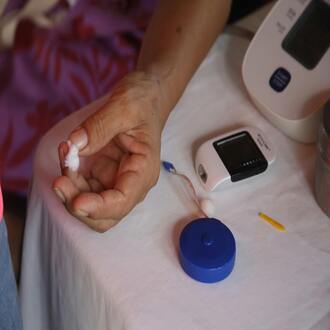Transcription Neurocognitive disorder due to hiv infection
Neurocognitive impairment due to Human Immunodeficiency Virus (HIV) infection is a complex condition that affects brain function in people with HIV. It is often underestimated and poorly understood, but has a significant impact on the quality of life of those who suffer from it.
In this session, we will explore in depth what neurocognitive disorder due to HIV infection is, its causes, symptoms, diagnosis, treatment and support strategies.
Causes of Neurocognitive Disorder due to HIV Infection
The primary cause of neurocognitive disorder due to HIV infection is HIV itself. The virus can enter the central nervous system and damage nerve cells, leading to cognitive problems. Other factors, such as chronic inflammation and immune response, may also contribute to the condition.
Characteristic Symptoms
Symptoms of neurocognitive disorder due to HIV infection can vary and often include:
- Memory problems: difficulty remembering recent information and events.
- Difficulty concentrating: Difficulty staying focused on tasks.
- Changes in processing speed: Slower responses to stimuli and cognitive tasks.
- Problems in motor coordination: Difficulties in manual dexterity and gait.
- Changes in mood and personality: Depression, irritability or apathy.
Diagnosis and Evaluation
Diagnosis of neurocognitive disorder due to HIV infection involves a thorough medical evaluation including cognitive testing, blood tests and brain imaging studies. It is important to differentiate this condition from other cognitive disorders and to monitor it over time.
Neurocognitive impairment due to HIV infection presents in different types and degrees of severity, ranging from mild impairment to dementia. Progression can vary widely from person to person.
Treatment and Management
Management of neurocognitive impairment due to HIV infection focuses on controlling HIV replication through antiretroviral therapy (ART). In addition, cognitive support strategies such as occupational
neurocognitive disorders immunodeficiency




